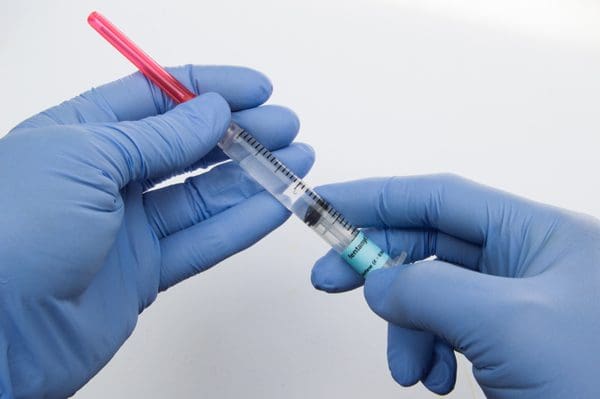 Fentanyl is a synthetic opioid used in hospitals as an anesthetic.
Fentanyl is a synthetic opioid used in hospitals as an anesthetic.
Approximately 50-100 times stronger than morphine, it is also available by prescription to treat severe pain, especially that which occurs after surgery. It may also be used to treat chronic pain in patients who haven’t responded well to other opioids.
How Fentanyl Works
Fentanyl works by binding to the opioid receptors in the brain that control both pain and emotions. Users experience feelings of euphoria, followed by feelings of drowsiness as the drug’s sedative effect takes hold.
Since fentanyl is such a powerful opioid, the risk of overdose is quite high. Illicit drug users may not even be aware they are taking the drug.
Fentanyl Facts
Consider the following facts about fentanyl:
- Fentanyl is odorless and tasteless. These qualities make the drug difficult to detect.
- Illicit manufacturers have mixed it with other street drugs, such as cocaine and heroin. They also manufacture fentanyl tablets, which are sold on the street as oxycodone (OxyContin). The vast majority of oxycodone being sold illicitly is fentanyl.
- Fentanyl can also be found in a powder, liquid or blotter form.
- It can be absorbed through the skin, making it hazardous for first responders who may be exposed when attempting to help an overdose patient.
- A dose of pure fentanyl approximately the size of four grains of salt (2 milligrams) is powerful enough to kill an average adult.
The drug acts as a depressant on the central nervous system. At a high enough dose, it shuts down the automatic breathing response and places the person who has been exposed to the drug in respiratory arrest.
Signs and Symptoms of Fentanyl Abuse
How can you tell that if a loved one has a problem with fentanyl abuse? Here are some signs and symptoms to look out for. While each one individually could be a sign of any number of issues, the more of them that you notice together, the more likely that there is something going on that you need to talk to your loved one about.
- Confusion
- Depression
- Excessive sleepiness
- Hallucinations (visual)
- Itching and scratching
- Labored breathing
- Nausea and/or vomiting
- Pinpoint pupils
- Shaking
- Slurred speech
Fentanyl abusers may take prescription fentanyl patches and heat them to release the medication more quickly than the manufacturer intended. Taking this step increases the intensity of the “rush” the user experiences, along with the drug’s side effects, and may push the user into an overdose situation.
How to Talk to a Loved One About Getting Help for Fentanyl Abuse
If you suspect or know that someone you care about is abusing fentanyl, you will no doubt be concerned for their safety. It’s best to tread carefully when discussing the issue; your loved one may try to deny that there is a problem at all or that he or she needs help.
Your best option is to find a time when your loved one is not under the influence and you can discuss the situation calmly. This is something that you should be talking about in private, so find a place to talk where you won’t be interrupted. Start by describing what you have seen and explain that you are concerned about your loved one’s well-being.
Don’t make any judgments about the behavior. Say that you’d like to help, and then wait for a response. Your loved one may need some time to think about what you’ve said, so be prepared to have more than one conversation.
When he or she seems receptive, share that Great Oaks Recovery Center offers a complete drug treatment program that includes detoxification, residential treatment and continuing care for your entire family.
If you or someone you love is in need of alcohol or drug treatment, contact our Houston area detox center anytime, at (713) 769-0102. We are here to help.
Sources:
What is fentanyl? Royal Canadian Mounted Police.
Fentanyl. National Institute on Drug Abuse.


